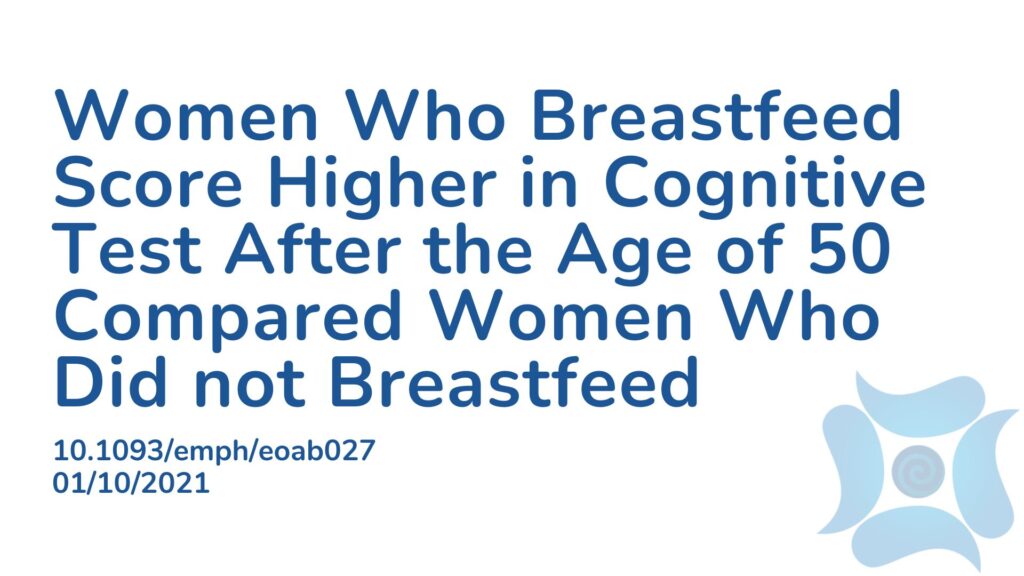Summary: This paper focuses on whether there is a relationship between a woman’s breastfeeding history and their cognitive performance later in life, over the age of 50. This paper assigned comprehensive neuropsychological tests to a cohort of women over 50 years of age, which assessed four cognitive areas (learning, recall, executive functioning and processing speed). The women who had breastfed exhibited far better performance in all four of the areas compared to women who had not breastfed. The authors reasoned that the biological impacts of breastfeeding would be neuroprotective, is associated with a lower risk of postpartum depression and a lower risk of chronic stress. Stress and lack of social support are both associated with cognitive decline and Alzheimer’s Disease.
Abstract:
Background and objectives: Women who breastfeed may experience long-term benefits for their health in addition to the more widely appreciated effects on the breastfed child. Breastfeeding may induce long-term effects on biopsychosocial systems implicated in brain health. Also, due to diminished breastfeeding in the postindustrial era, it is important to understand the lifespan implications of breastfeeding for surmising maternal phenotypes in our species’ collective past. Here, we assess how women’s breastfeeding history relates to postmenopausal cognitive performance. Methodology: A convenience sample of Southern California women age 50+ was recruited via two clinical trials, completed a comprehensive neuropsychological test battery and answered a questionnaire about reproductive life history. General linear models examined whether cognitive domain scores were associated with breastfeeding in depressed and non-depressed women, controlling for age, education and ethnicity. Results: Women who breastfed exhibited superior performance in the domains of Learning, Delayed Recall, Executive Functioning and Processing Speed compared to women who did not breastfeed (P-values 0.0003–0.015). These four domains remained significant in analyses limited to non-depressed and parous subsets of the cohort. Among those depressed, only Executive Functioning and Processing Speed were positively associated with breastfeeding. Conclusions and implications: We add to the growing list of lifespan health correlates of breastfeeding for women’s health, such as the lower risk of type-2 diabetes, cardiovascular disease and breast cancer. We surmise that women’s postmenopausal cognitive competence may have been greater in past environments in which breastfeeding was more prevalent, bolstering the possibility that postmenopausal longevity may have been adaptive across human evolutionary history.
Article Publication Date: 01/10/2021
DOI: 10.1093/emph/eoab027




